Medicines make us better. But in case of over- or under-dosage, or an allergy to one of the ingredients, they can sometimes cause unpleasant symptoms. We list the most common side effects for you and look at ways to prevent or minimise them.
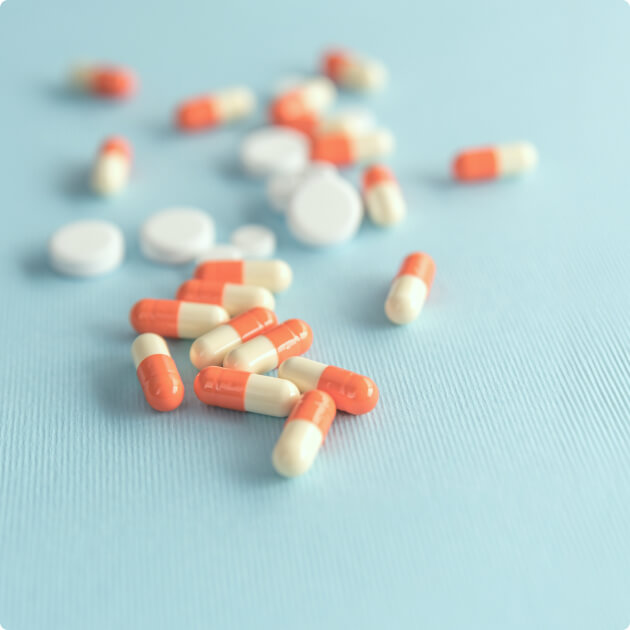
Side effects come in all shapes and sizes. Some are mild or irritating, but in rare cases, side effects can also be serious or even dangerous. The possible side effects are printed in tiny letters in the package leaflet. Pleasant reading is not: the list is often long and can be quite gruesome. Fortunately, the nastiest side effects are rare. To be well prepared for what to expect, it is best to consult your doctor at the start of your medicine regime.
Types of side effects
Many common side effects:
- Headache
- Fluffiness/sleepiness
- Diarrhoea
- Abdominal pain
- Skin rash
- Heart palpitations
- Nausea/vomiting



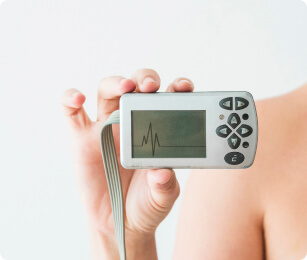
With anything you take, there is a small risk of irritating your stomach or intestines. Most medicines can therefore cause nausea or diarrhoea, although this will only happen in a small percentage of patients.
Most medicines can cause allergic reactions. Such a reaction results from your body being hypersensitive to one of the drug’s ingredients, so your immune system kicks into action and starts making antibodies. The reaction can be mild – itching, for example – or even life-threatening. One of the most common drug allergies is penicillin allergy. In this allergy, the immune system overreacts to ingestion of penicillin.
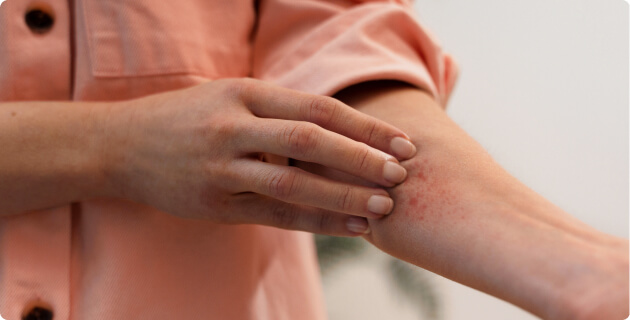
Who is prescribed penicillin for Pfeiffer’s disease (caused by the Epstein-Barr virus), for example because it is mistakenly thought to have inflamed tonsils or an abscess in the pharynx, may also experience a reaction. As many as 42% of patients with Pfeiffer develop severe skin rashes within five to 10 days of starting a course of amoxicillin (a penicillin). After stopping the cure, the rash disappears again. The skin reaction does not mean that the patient is allergic to penicillin. There is in this case a cross-reaction between the penicillin and the greatly increased population of T lymphocytes (immune cells).
Medicines that reduce allergy symptoms, incidentally, can in turn cause a reaction. For instance, diphenhydramine causes you to become a little drowsy or to get a dry mouth. Hence, the package leaflet then states that you should not drive or operate heavy machinery for several hours.
Related tests


How quickly do you notice side effects of medicines?
This varies. Some medicines can irritate your stomach and intestines within just a few hours, causing nausea or diarrhoea. Depending on how quickly the medicine metabolises in your body – which can vary from person to person – side effects or allergies may occur after some time. Sometimes it may take a bit longer and interact with the immune system, as in the reaction to penicillin in Pfeiffer’s disease. In this case, it may take five to 10 days before the reaction occurs.

How long do side effects last?
How long side effects can persist varies from drug to drug. The rule of thumb is that if you experience serious side effects, stop taking the drug in question immediately. You then discuss the side effect with your doctor so that the medicine regime can be adjusted. In case of life-threatening side effects, of course, you call for emergency help immediately. Fortunately, such serious situations are extremely rare.
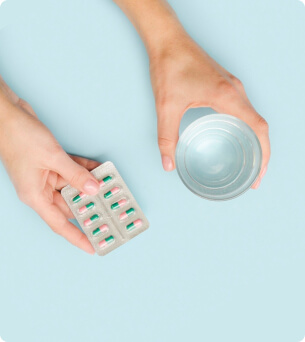
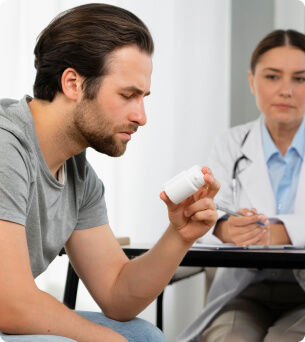
How can you prevent side effects?
Side effects can occur when you combine one drug with another (drug interaction) or when you drink alcohol. For example, consuming alcoholic drinks in combination with opiates can result in slowing of the heart rate, slow breathing and lower blood pressure. Excessive use of alcohol and opiates can even result in death. Avoid drug interactions by informing your doctor and pharmacist properly and do not drink when your medication interacts with alcohol.

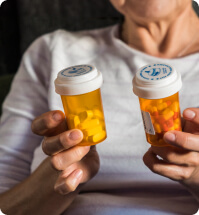
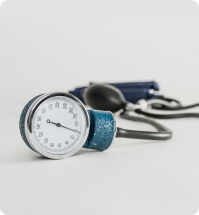
One of the most powerful ways to prevent or minimise side effects, and to optimise the efficacy of drugs, is to take a pharmacogenetics test in consultation with your doctor or pharmacist. After all, every person reacts differently to medication. How sensitive you are to medication is genetically determined. The pharmacogenetics test is a dna test that determines in a laboratory exactly how you react to certain medicines. With the resulting DNA Medication Passport in hand, your doctor can prescribe more effectively and prevent side effects as much as possible.
Where can you report side effects?
If you suffer from an adverse reaction, you can discuss it with your doctor and report it to the Lareb Collaboration Centre.

Lareb is a body that collects side effects and discusses them with the Medicines Evaluation Board (CBG). All incoming information on side effects is analysed and compared with studies, also from other countries, to determine whether there is a new side effect. If there is a new or serious side effect, the MEB can take action. For example, the MEB may decide to amend the package leaflet or make a prescription compulsory. It is also possible to send a warning about the side effect to doctors and pharmacists. In the most serious case, the drug in question is taken off the market.
Your report thus helps ensure that we can continue to take our medicines safely.







